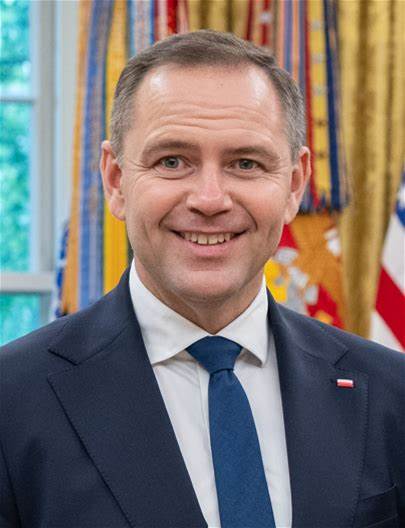News | Events | Digital PR | Advertising

Karol Nawrocki, a combative right-wing historian and ally of the Law and Justice (PiS) party, has narrowly won Poland’s presidential election, securing 50.89% of the vote over liberal Warsaw mayor Rafał Trzaskowski.
The victory not only prolonged PiS’s grip on the presidency — now extending to a decade-long hold on the office, but also delivered a major blow to centrist Prime Minister Donald Tusk, whose pro-EU government had pledged to dismantle PiS’s legacy and restore liberal democratic norms.
Nawrocki, 42, emerged as an underdog throughout the campaign, surviving damaging reports about his past, including his self-professed brawls with soccer hooligans. A vocal supporter of Donald Trump, he even visited the White House weeks before the election. His late-game endorsement from a far-right third-place finisher proved decisive in the runoff.
Though technically running as an independent — as is typical in Polish presidential contests — Nawrocki’s close alignment with PiS was never in doubt. His win means he now holds the presidential veto, a powerful tool previously used by outgoing President Andrzej Duda to stifle Tusk’s legislative agenda.
Nawrocki’s win presents a serious challenge to the European Union’s hopes that Poland, under Tusk, could serve as a model for post-populist recovery. The result suggests PiS still commands deep grassroots support, particularly outside urban liberal strongholds, despite losing parliamentary power in 2023.
With Tusk’s coalition lacking a supermajority in parliament, Nawrocki’s veto power could stall judicial reforms, media restructuring, and EU-aligned policies.
While Trzaskowski accepted the results, he warned supporters that “this fight is not over,” framing the outcome as a temporary setback in Poland’s battle over democracy and identity.
As the dust settles, Poland is once again at the crossroads; its government split between liberal reformers in parliament and a nationalist president determined to preserve the populist order.
Explore more
Tiwa Savage Marks Triumphant Return with New Album “This One Is Personal” After Five-Year Hiatus
After a long wait, Nigerian music superstar and queen of Afrobeats, Tiwa...
Scientists Research Nigeria’s Okra, Maize, Four Other Crops During NASA’s Space Mission
International astronauts will research six indigenous Nigerian crops and seeds during the...
Tinubu appoints Omotenioye Majekodunmi as Director-General of National Council on Climate Change
President Bola Ahmed Tinubu has appointed Mrs. Omotenioye Majekodunmi as the new...
Tinubu Extends Tenure Of The Comptroller-General Of Customs By A Year
President Bola Tinubu has approved a one-year extension of the tenure of...












Leave a comment